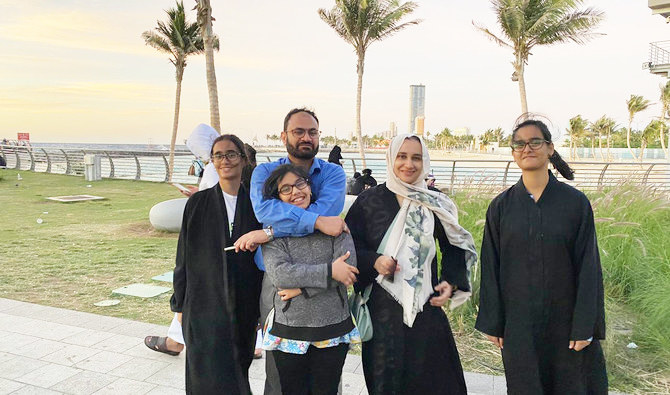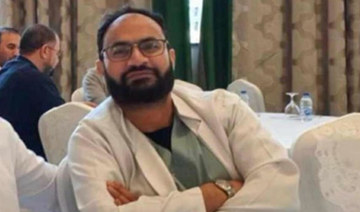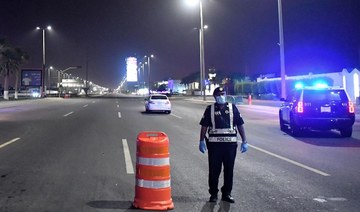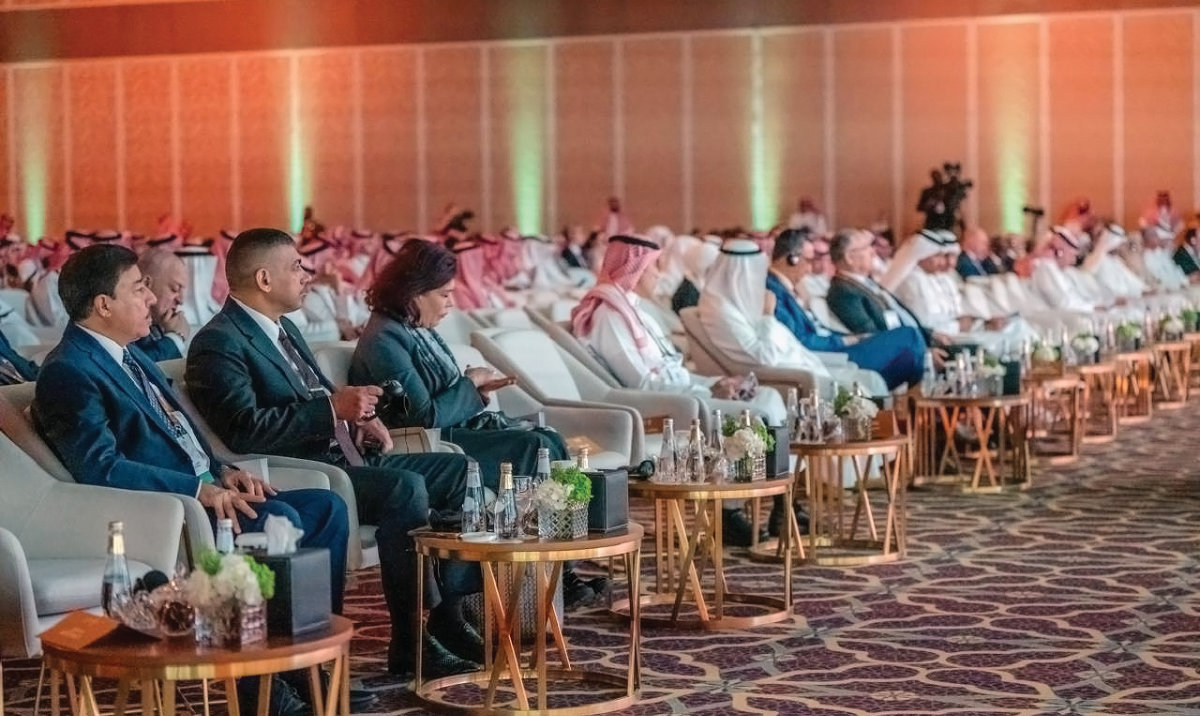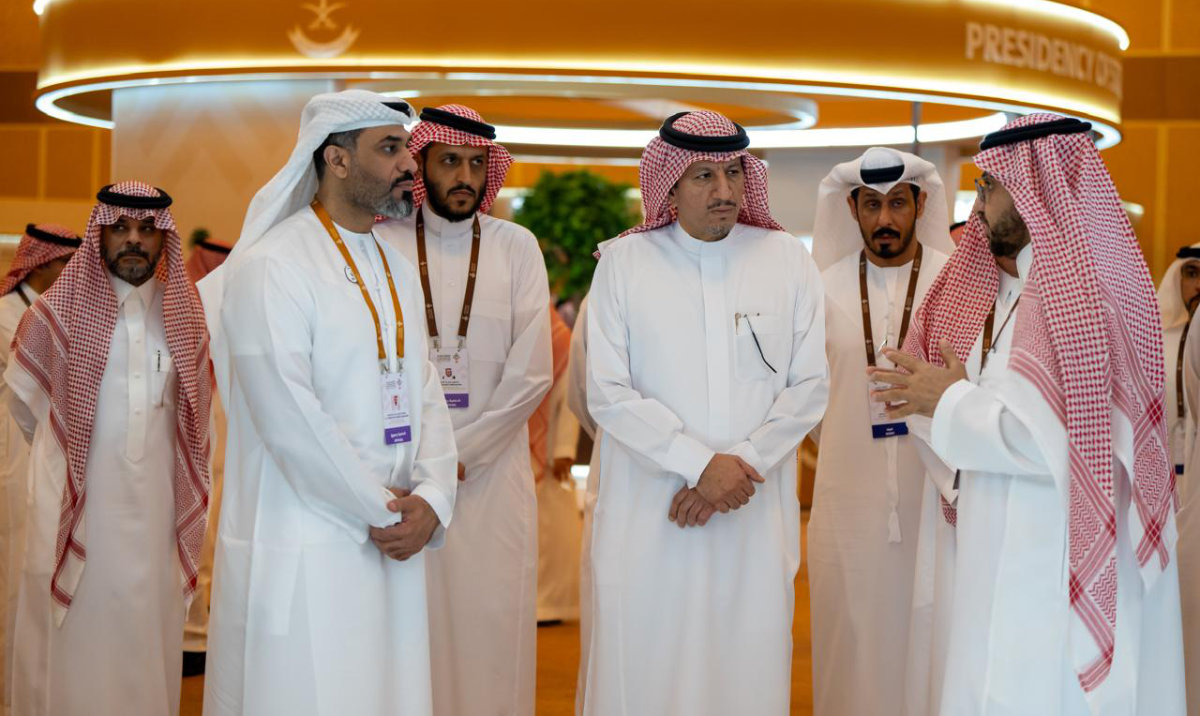ISLAMABAD: Pakistan’s diaspora community and medical professionals in Saudi Arabia have paid tribute to a Pakistani surgeon, Dr. Naeem Khalid Chaudhry, who became the first medic in the Kingdom to lose his life to the coronavirus disease (COVID-19), two days ago in Makkah, where he worked in the at Hira General Hospital.
Chaudhry was 46 years old and hailed from the northeastern district of Narowal in Pakistan’s Punjab province. He moved to Saudi Arabia in 2014 with his family to work as a surgeon in Islam’s holiest city. He is survived by his wife and three daughters who also live in Makkah.
Tooba Chaudhry, the wife of the deceased doctor who also works at the hospital as a radiologist, said that her husband kept on performing his duties throughout the pandemic, and showed mild symptoms on May 14.
“He had mild fever and complained of fatigue on May 14, and it was established that he was suffering from COVID-19 after a medical test the same day. We started treating him and he showed signs of improvement until the beginning of this month. Then suddenly his condition deteriorated,” she told Arab News on Friday.
“My three daughters and I have also tested positive for COVID-19, but we are now stable. Our symptoms have disappeared, but the hospital has not called us for a second test,” she added.
“Pakistan’s ambassador to Saudi Arabia, and officials at the consulate general in Jeddah, called me and assured full support to my family,” she continued. “The Saudi officials also allowed me to bid farewell to my husband in a fully protective outfit.”
Pakistan’s consul general in Jeddah, Khalid Majid, said the deceased doctor would be remembered as an indefatigable philanthropist for his illustrious contributions to the fields of medicine and social work.
“He was an important member of the medical team fighting against COVID-19 in the Makkah region. The Pakistani community in Saudi Arabia has indeed lost a sincere compatriot who served humanity with zeal and sincerity,” he told Arab News on Friday.
Saudi Ambassador to Pakistan Nawaf bin Said Al-Malki also prayed for the Pakistani surgeon, while recognizing his services to the Kingdom.
“I offer my condolences and prayers for the family of the Pakistani surgeon Naeem Khalid Chaudhry, who moved to the mercy of Allah Almighty due to his infection with COVID-19, while performing his duty on the frontline against pandemic at Hira General Hospital in Makkah,” he said in a Twitter post.
Dr. Muhammad Irfan, Chaudhry’s colleague and close friend, told Arab News that his coworker performed his duties tirelessly and with utmost dedication.
“I was with him in the surgical department for the last six years. He was a close friend and very good surgeon. He never showed a sign of hesitation while treating COVID-19 patients,” he said.
“The whole hospital is in a state of shock, since Dr. Chaudhry was very popular due to his professionalism,” Dr. Muhammad Saleem, an intensive care unit specialist at the hospital, told Arab News.
“He got COVID-19 infection two weeks back while performing hospital duties. We used the best resources for his recovery, but unfortunately he did not survive,” he added.
Dr. Asad Ullah Roomi, president of the Pakistan Doctors’ Group in the Kingdom, said all Pakistani medical professionals were at the forefront of this fight against the pandemic along with their Saudi colleagues.
“Dr. Chaudhry was a very hardworking and skillful surgeon. He was also academically involved in the training of his juniors,” he told Arab News, adding: “He was also an active contributor to a Pakistani doctors’ charity initiative, and provided free medical services to underprivileged individuals in the Makkah region.”
Dr. Zia Ullah Dawar, a public health specialist at the Saudi Ministry of Health in Jeddah, remembered Dr. Chaudhry in these words: “He was a thorough professional who never hesitated from his duty despite all its dangers.”
He also revealed that the Pakistani surgeon served five times in the southwestern border city of Jazan on the request of the health ministry.
“Dr. Chaudhry used to help the Pakistani community in Makkah and provided free services to the deserving people,” Dawar continued. “He was about to be promoted in about a month from a surgical specialist to a consultant.”







